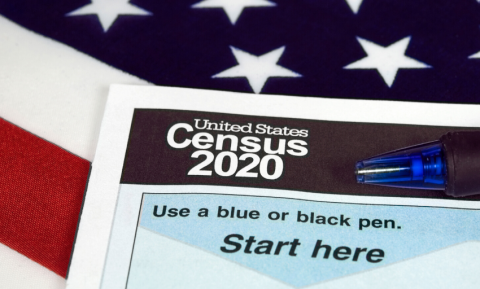
This commentary by VHFA Executive Director Maura Collins appeared recently in VTDigger
As the start of the 2020 U.S. census nears, it is important to understand its immense impact on our daily lives and why an accurate count of our nation’s population is so important.
The founders of our country thought that the census was so essential that they included it in the Constitution. A census must be conducted every ten years to count each person living in the country, and congressional representation and taxes are allocated based on the results. Census counts have a significant impact on our political landscape, with the shape of congressional districts and the number of seats in the U.S. House of Representatives for each state and electoral votes subject to the results.
In addition, Vermont receives over $2.5 billion each year in federal funds allocated based on census data. With $97 million spent on housing and community development programs, other census-based federal funding pays for education, public health, infrastructure and more.
The first decennial census – so named because of its ten-year cycle - was conducted in 1790 by U.S. Marshals. It wasn’t until 1902 that the U.S. Census Bureau was created to oversee the decennial census and tabulate its data. For the 2020 census, the Census Bureau will hire almost half a million temporary workers to carry out the count. For the first time, it will allow all households to respond online or by phone, although paper forms will still be available.
Over time, the Census Bureau’s mission expanded to collect more and more information. Between 1970 and 2000, the U.S. Census Bureau used two different questionnaires: the so-called ‘long-form’ and ‘short-form’ census. In 2005, the Bureau introduced the American Community Survey (ACS) to replace the longer questionnaire and give us detailed information about our ages, incomes, family type and homes. The ACS is conducted continuously with smaller sample groups of households and new data is available every year.
The 2020 decennial census will involve a single short questionnaire consisting of just seven questions. In addition to counting the number of people, also it will ask about age, race, gender, marital status and homeownership.
Although the ACS gathers some of the same information as the census, only a small sample of people answer it, so the data it generates are estimates and not a complete count. While the Census Bureau strives to make the ACS estimates as accurate as possible, there can be large margins of error, especially in Vermont’s smaller towns and villages. The decennial census is one of few opportunities to gain basic information about every household in the country. This information is used by an enormous number of diverse groups, including government agencies, non-profits, businesses, community organizers and academic researchers.
The 2020 census has experienced unusual controversy this year due to the proposed addition of a question on citizenship status. Citizenship questions had not appeared on the short version of the decennial census questionnaire since 1950, although they are currently asked on ACS surveys. Research and test surveys conducted by the Census Bureau suggest that immigrants and people who are members of minority groups might respond incorrectly to these questions or refuse to respond the census altogether, potentially reducing participation by 9 million households. The questions have been withdrawn from the 2020 Census following a Supreme Court decision, but many advocates worry that lingering concerns about confidentiality and government use of personal data could reduce participation in the Census.
Even without the citizenship question, surveying every American household is an immense technical challenge. Complicating matters are significant cuts in recent years to the Census Bureau’s budget and its difficulty in attracting temporary workers in an economy with low unemployment. This is of great concern to many communities, who may miss out on much-needed federal funding or may lose representation in Congress if their population is undercounted. One report found that for every person not counted by the 2020 Census, Vermont would lose $2,300 in federal funding. In response, many Vermont cities and towns are forming Complete Count Committees to increase awareness and motivate residents to respond to the 2020 Census.
The Census is essential for guaranteeing equal representation in our government. It is every Vermonter’s both right and civic responsibility to be counted.
